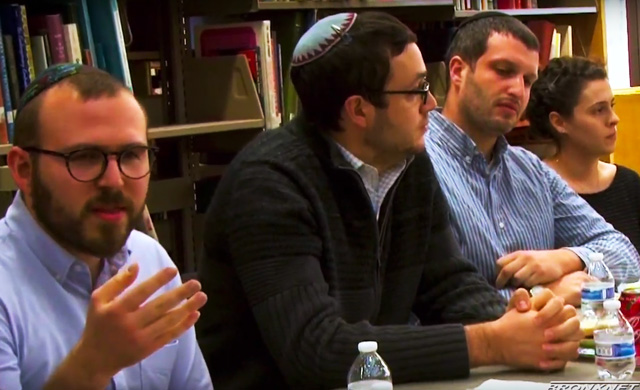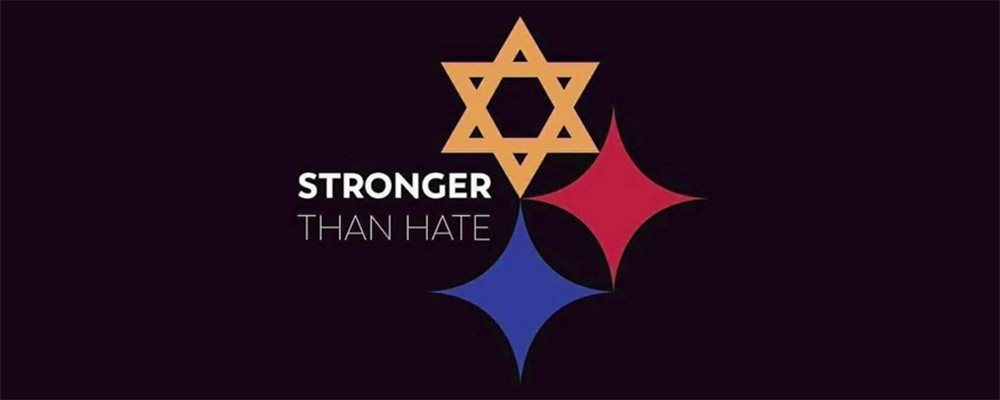By Deanna Garcia
On Oct. 27, 11 lives were taken in the Tree of Life Synagogue in Pittsburgh. Mayor Bill de Blasio responded in front of the Park East Synagogue later that evening. “It’s a painful time and it’s a time when hatred has been allowed to spread too far but we as New Yorkers have a chance to be a part of the solution because this city has always stood for understanding and for mutual respect.”
According to the New York City Police Department, the Jewish community is the group most often targeted in hate crimes. In 2017, there were 151 attacks motivated by religion. In the first three quarters of 2018, there were 108 complaints.
New York Congressman Jerrold Nadler sent out a letter on Nov. 27 addressing hate crimes and white supremacy. “The horrific massacre at the Tree of Life Synagogue in Pittsburgh, the murder of an African-American couple in in a Kentucky grocery store, an Indian engineer in a Kansas bar, and the package bombs sent to Trump opposition figures are only the most recent reminders of the ever-present threat of extremism in our country,” Nadler said.
A group of rabbinical students from Yeshivat Chovevei Torah in the Bronx traveled to Squirrel Hill to show their support for the Jewish community. These rabbis in training gathered not long after in the Leonard Leif Library at Lehman College to talk about their experience.

Eli Finkelstein said that he did not find out about the attack until 10 hours after it had happened. “Because it was Shabbat Saturday, none of us had our phones, none of us were watching television, none of us knew what was going on,” he said.
While they were in Pittsburgh, the group attended a few funerals. Rabbinical student Joshua Pernick said that he initially felt guilty attending the victims’ funerals as a stranger. However, once he spoke to the family members one-on-one, he said his view changed. “I felt like I got to know Cecil and David a little bit,” he said. “I got to know them individually, not just by their names.” Hearing these two victims’ stories gave him a picture of who they were before the attack. “I feel like there are so many tragedies of this sort. We tend to move on and forget the individual people that are there,” Pernick said.
Eitan Cooper said every Jewish community lives inside of a bubble. “We rely on each other. It’s isolating but it’s like a chosen isolation,” he said. “Everything they know, this safe, quiet community is totally shattered from this event and it’s going to take a long time, weeks, months, and years until they build that sense of safety.”
In “The Psychology of Hate Crimes,” the American Psychological Association said victims of hate crimes are more likely to experience psychological distress than victims of other crimes. “Hate crimes send messages to members of the victim’s group that they are unwelcome and unsafe in the community, victimizing the entire group and decreasing feelings of safety and security.”
Cooper said he was moved that the Pittsburgh Steelers changed the yellow star in their logo to the Star of David to honor the community. “Pittsburgh is a major American city,” he said. “To change the logo of their football team to have a Jewish star in it was really powerful to me. I think that might have been the first time in history in which a yellow, Jewish star was plastered on walls as a form of solidarity rather than of oppression.”
When in Pittsburgh, Cooper doubted what he could actually accomplish. Yet he realized that words of comfort are what he was able to provide to the community. “I was motivated by a deep kinship, a deep feeling of unity, a deep feeling of a brotherhood with my fellow Jews,” Cooper said. “All it took was for us to just show up.”
Bina Westrich, director of student affairs and alumni engagement at Yeshivat Chovevei Torah, shared her thoughts on being in New York after the attack. “It happens way too often in Europe, but not something that happens here,” she said, “The values and freedoms that we have as Americans, it didn’t seem like something that should happen here or could happen here.”
A recent Economist article “Jew-hatred keeps mutating to survive – Anti-Semitism in the West” describes Jewish hate crimes in Europe and says the rise of populism is a factor. “Some American Jews have warned their European brethren to leave. Thousands have gone to Israel, notably from France, where along with murders and other outrages, graveyards have been desecrated.”
Rabbi Zalman Teitelbaum from the Bronx says it is important to teach students to consider both victims and their families. The Pittsburgh murders were not just an attack on individuals, but on the community. “It didn’t instantly set in as an attack on the Jewish people,” said Teitelbaum. “It was only later that when you hear more details that it wasn’t an attack on individuals, rather it was an expression of an attack on the Jewish nation.”
The students were overwhelmed with the amount of support shown for the Jewish community in the aftermath. “An attack on one community is an attack on humanity and our values,” Westrich said.
“There were a lot of flowers and even crucifixes in front of the synagogue, which initially made me feel uncomfortable, but then I understood the context that people were generally mourning the loss of humanity,” said Lawrence. “Jews weren’t the only ones in burden of this crime and tragedy.”
Recently, there have been more incidents relating to anti-Semitism. A 9-year-old boy was punched in the face in Brooklyn, possibly because of his religion and Elizabeth Midlarsky, a professor at Columbia Teacher’s College, had anti-Semitic slurs and swastikas painted on her office walls.
Pernick hopes that communities coming together and sharing stories will create unity. “Relationships are really the core of trying to get rid of the hate and division in communities in the country right now.”



